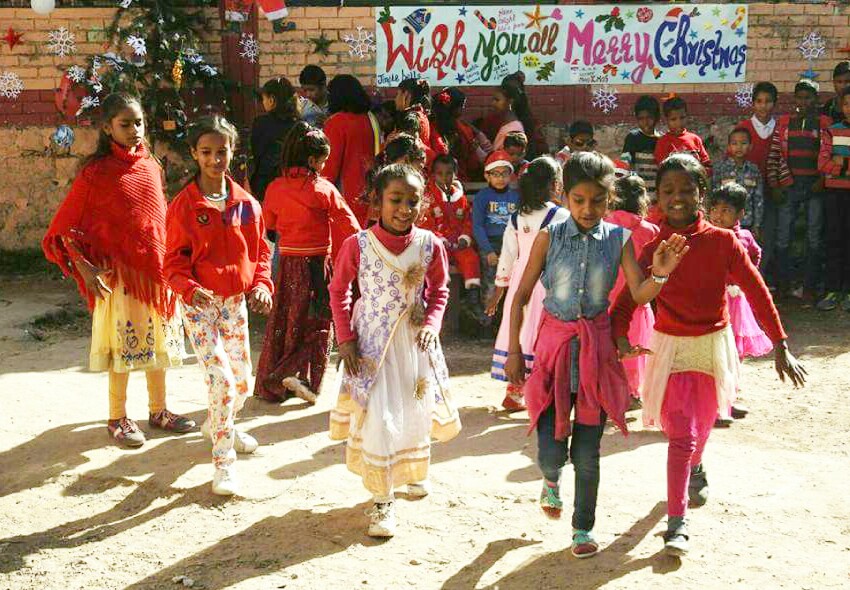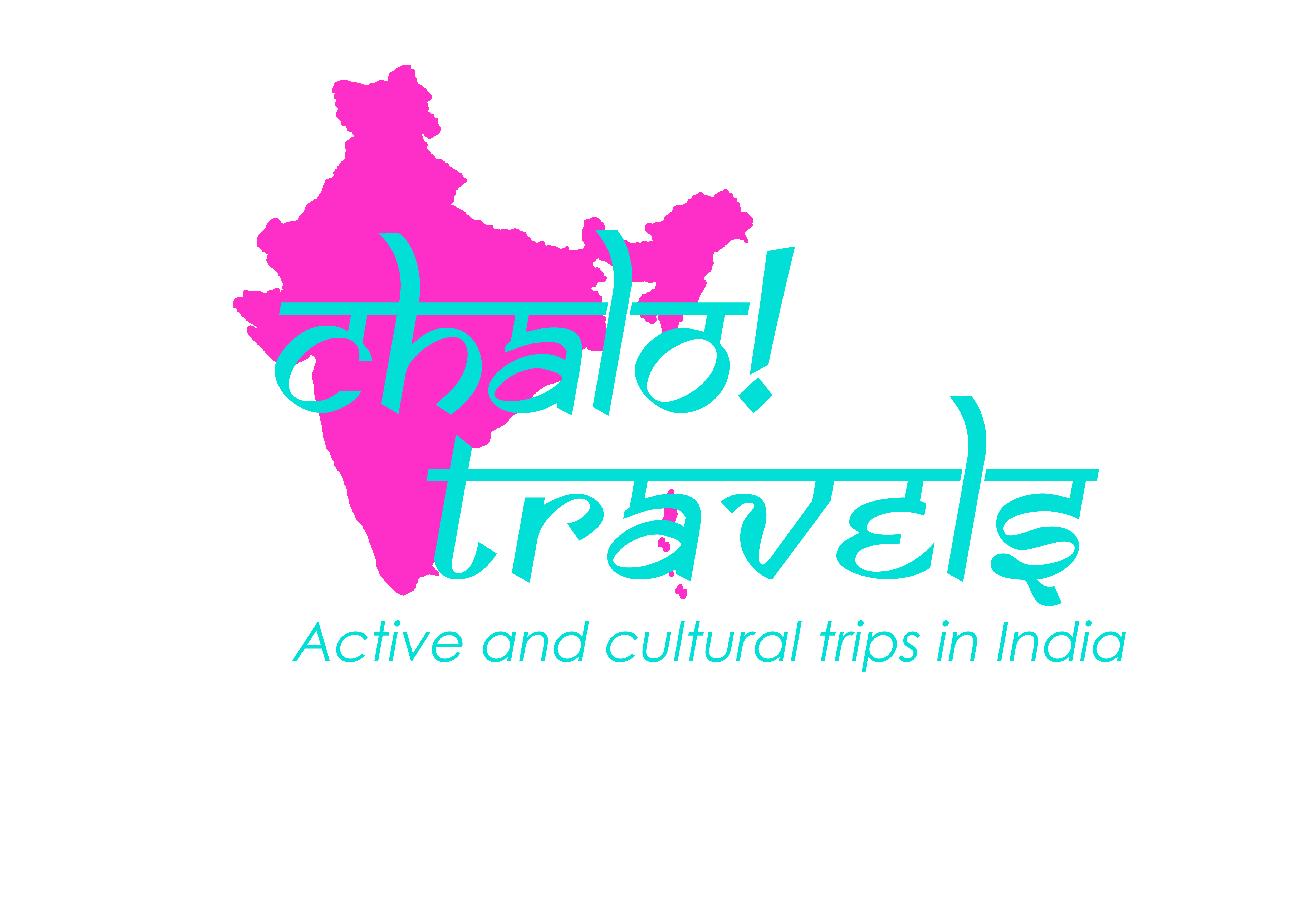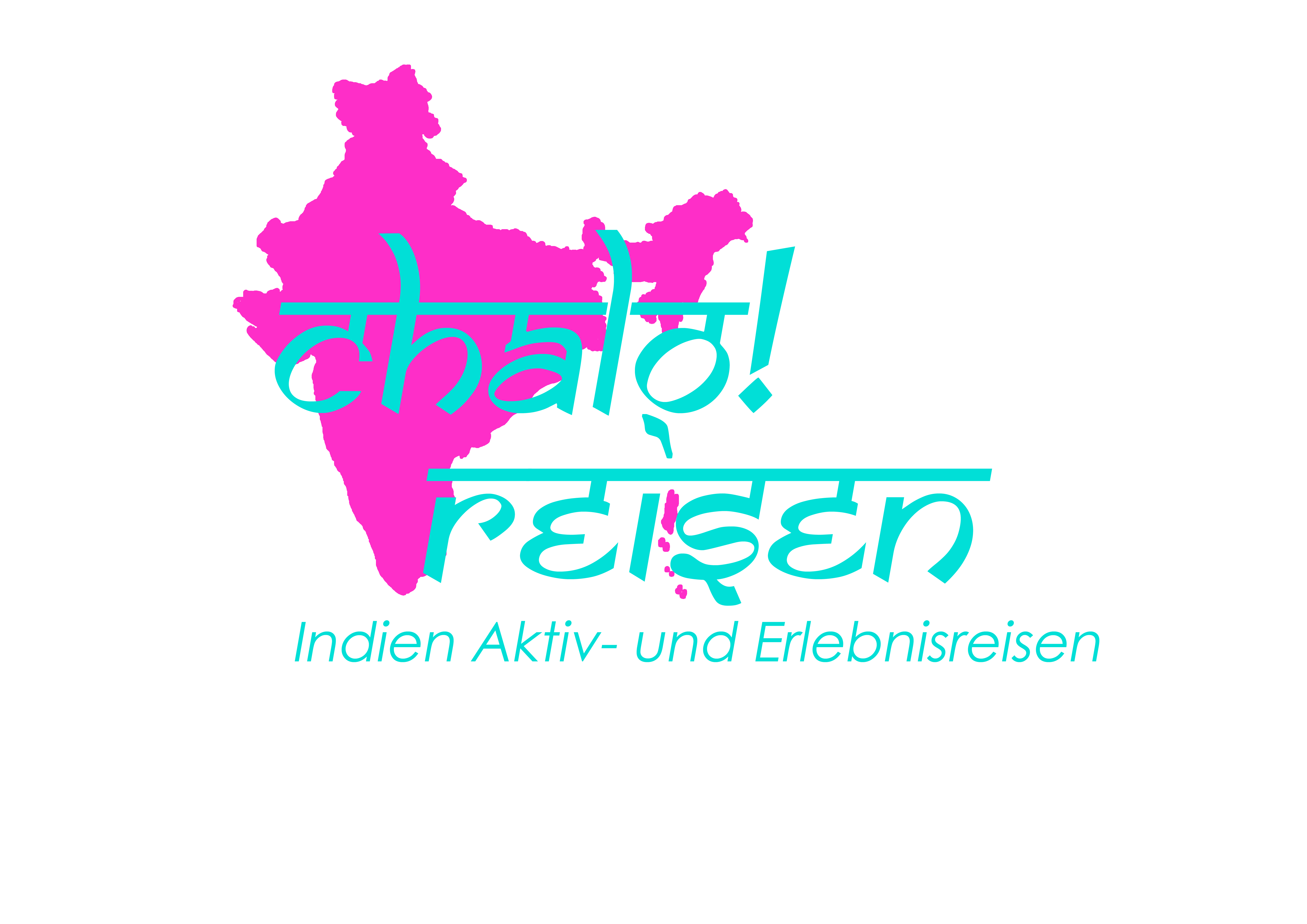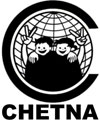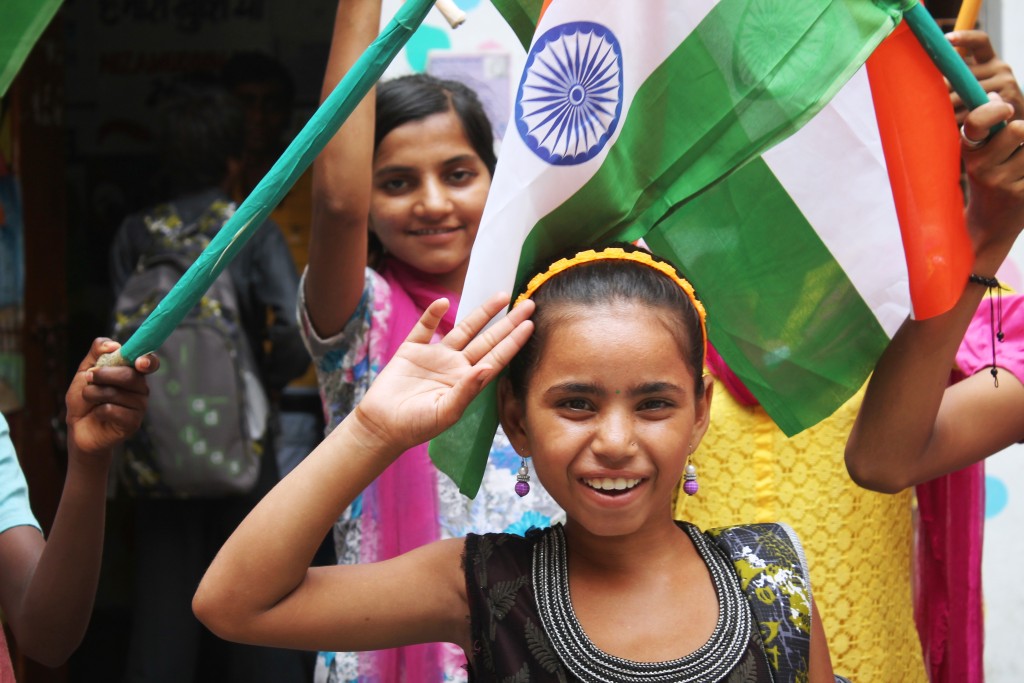
Volunteering and Donations
Chalo! Travels is working with the non-profit organisation CHETNA and HUMAN HOPE FOUNDATION. CHETNA is an NGO in Delhi that supports street children with various programs to escape the vicious circle of child labour and life on the streets.
The HUMAN HOPE FOUNDATION also supports children of disadvantaged social classes on their educational path and does so above all through a project with Chalo! Travels, where we award one-year scholarships to girls who would otherwise not be able to attend school.
More about both organisation below on this side.
What can I do? Donations and Volunteering
I myself came to India through a year of volunteering with a non-profit organisation in Delhi.
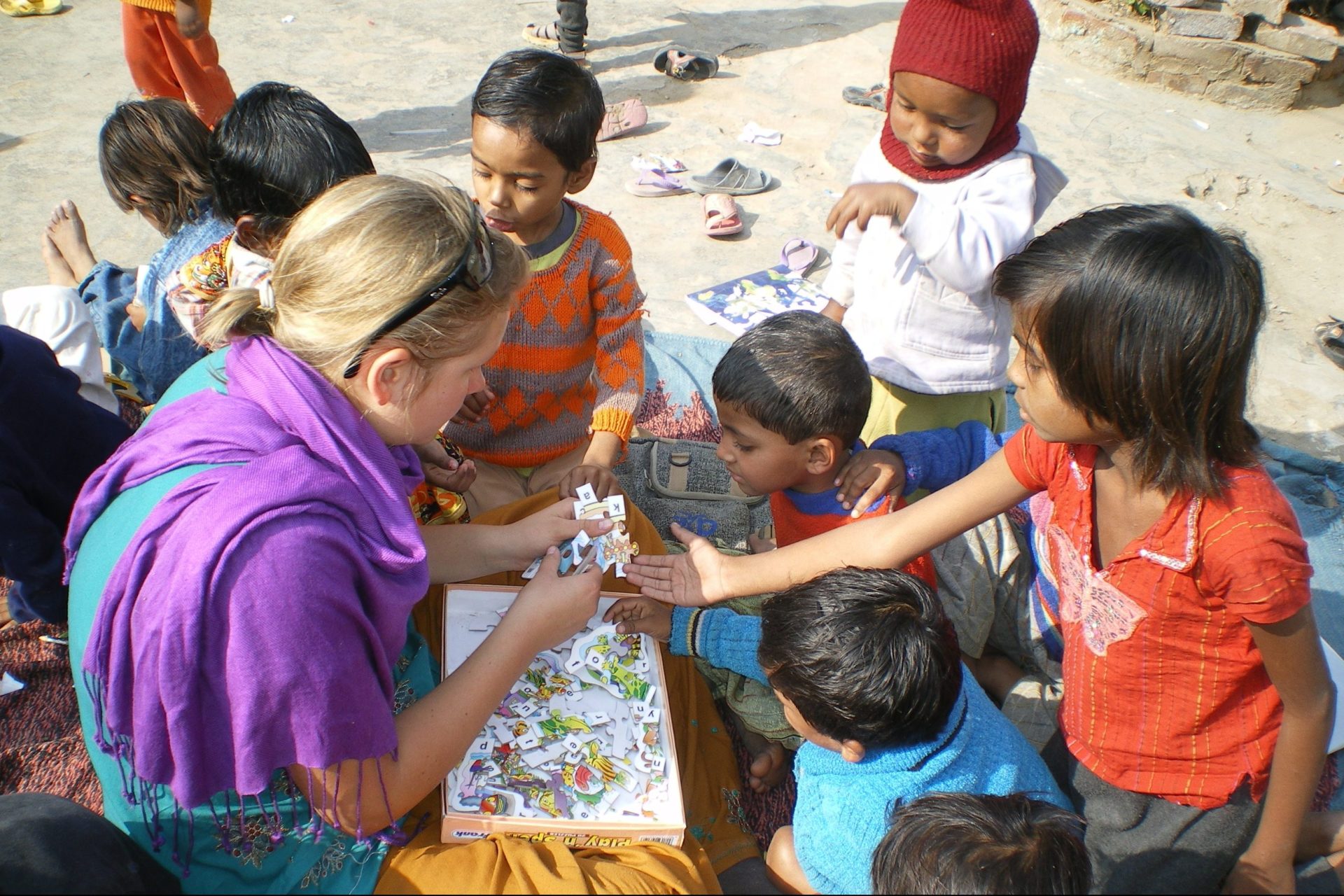
Fresh after graduating from high school as a 19-year-old, this year was an incisive experience and a very instructive but also enriching time for me.
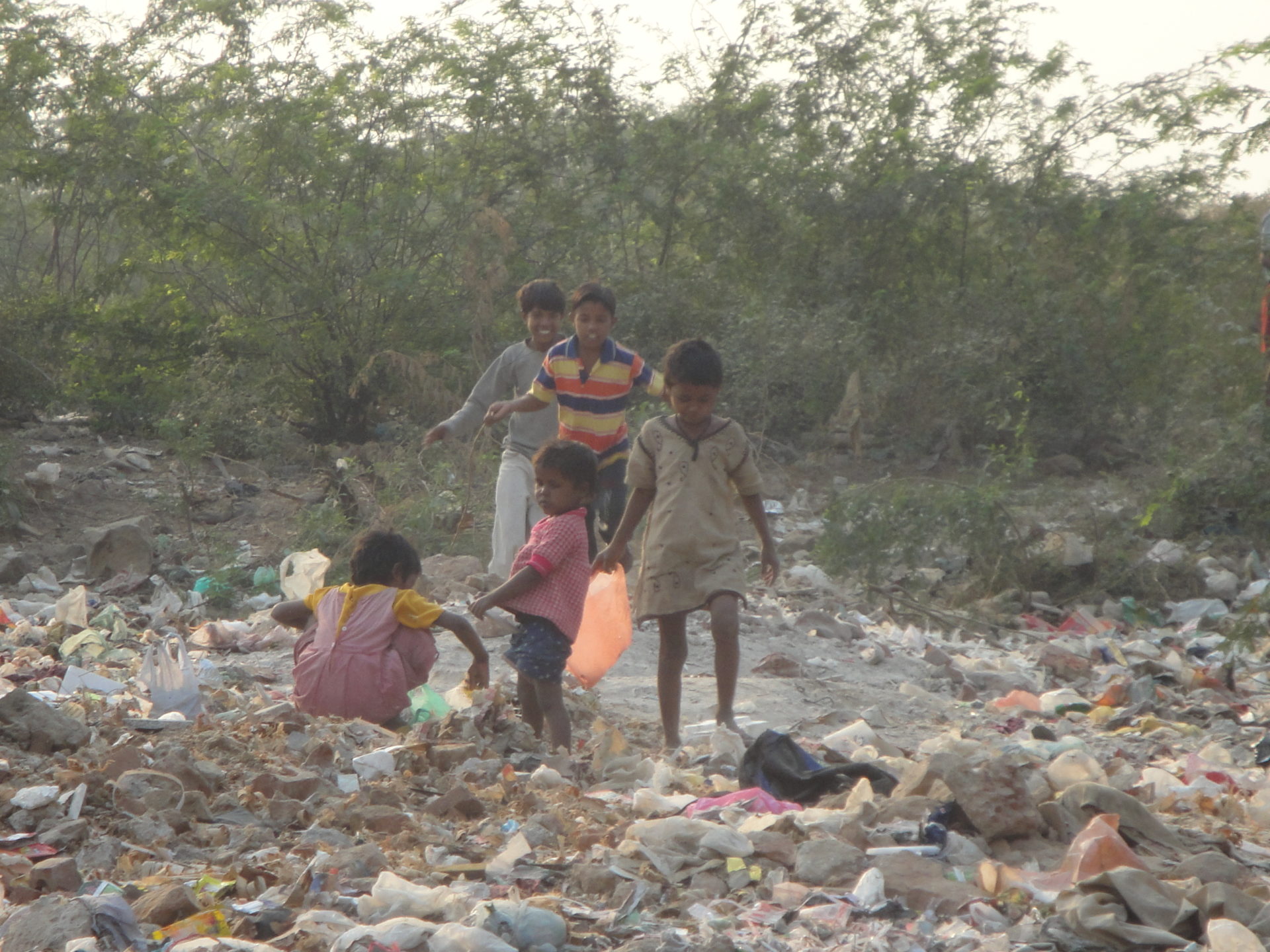
India is a beautiful country with wonderful people. But despite the emerging country’s increasing progress, poverty in India is on every street corner.

Begging women with their babies, cripples crawling through trains in rags, children working in restaurants, sparsely cobbled together tent shelters that serve as dwellings. This, too, is India.

And it is precisely where there is money that the poorest of the poor are drawn. Tourists mean money and so it is inevitable that travelers will encounter not only beautiful impressions, but also suffering and poverty during their trip to India.
But what do you do then? You want to help. After all, you are here as a guest in the country and you have a lot more money at your disposal than the average Indian.
But what is right or the best?

I often ask myself these questions of my guests. Are there beggars? Should you bring pens and sweets for the children? Can I volunteer somewhere? Are there any social institutions to which donations can be made?
My answer: you often do more harm if you support the system of organised begging. As long as the system works, children will continue to be sent to the streets instead of school. The same applies to women.
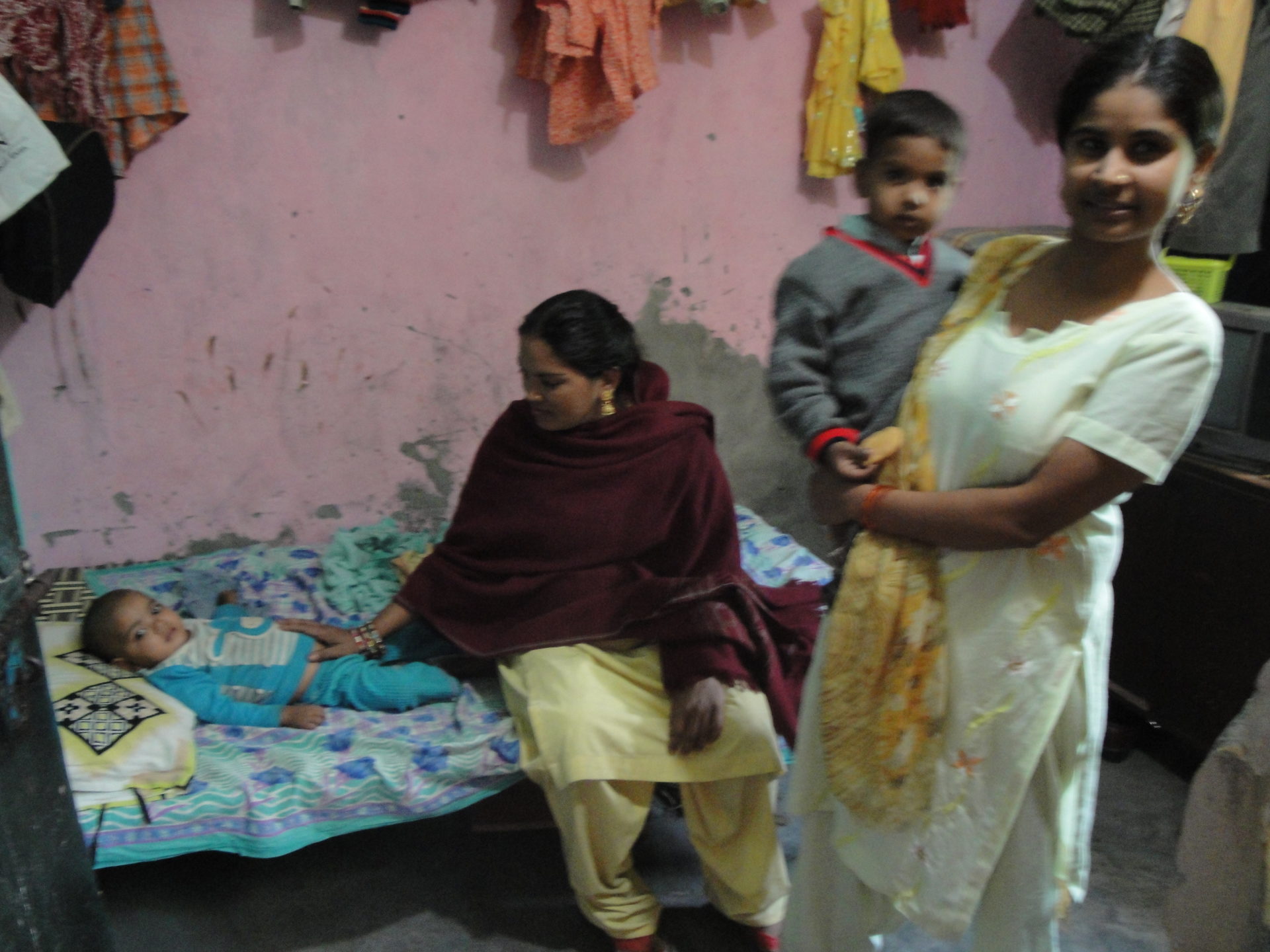
However, it makes perfect sense to keep a few rupees in coins ready for elderly or severely disabled beggars. For this group of people, daily begging is often the only way to survive.
Also the bringing of pens and sweets in the tourist areas has led to a strong demand for gifts from tourists, which can often be unpleasant.
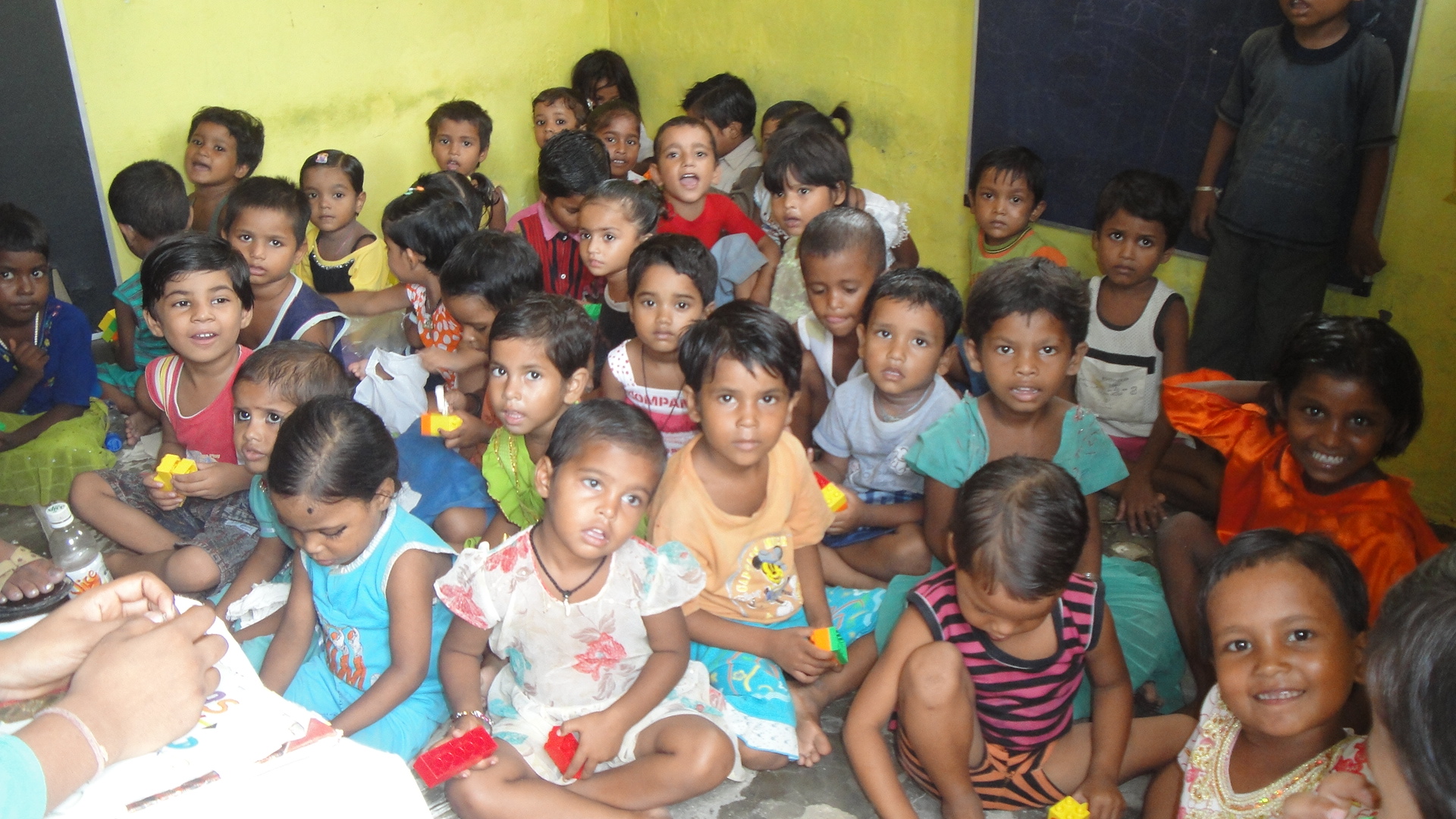
However, if you visit social institutions, visit someone or have a very special relationship with a family, but small souvenirs like sweets are a nice attention.
Otherwise, as a targeted support for India and its poorer population, I recommend targeted donations to well-functioning non-profit organizations.

If you don’t have money, but have time and work, as well as looking for a cultural exchange, I recommend volunteering. However, it should be noted here that volunteering only makes sense if you have a longer period of time and you can really get involved. Short volunteer stays of less than one month are usually only a great logistical effort, cost money and, above all, hardly bring anything to the needy, as they need time to get used to reference persons.
Chalo! Travel works with the nonprofit CHETNA and Human Hope Foundation.
On Chetna:
The organization is located in Delhi and has been caring for street children and working children in Delhi and the surrounding areas since 2002.
On Human Hope Foundation:
A tiny organization in my Indian hometown of Shimla that is very close to my heart. Here, 28 children from socially disadvantaged families are supported, as well as 6 talented girls with a scholarship, a full education is provided. Here more info.

We at Chalo! Travel, recommend to our guests a donation of money through us to this two organization. We can also organise volunteer stays/work at CHETNA or the Hopüe Foundation.
When booking a trip with Chalo! On request, a voluntary donation of € 50 per person to CHETNA/Human Hope Foundation is included.
Of course, a higher sum or even for an entire project may be donated.
Moreover Chalo! Travels organizes for its donor guests visits the projects in Delhi and Shimla.
CHETNA- Improving the childhood of street children in Delhi
Collaboration with the non-profit organisation CHETNA in Delhi
CHETNA- “Childhood Enhancement through Training and Action” is a non-government non-profit organization in Delhi that works for Indian street children and working children in Delhi and the surrounding streets.

The Hindi word “Chetna” means “creating attention” and stands for “improvement of childhood through training and activity. The NGO has been working since 2002 and consists of social workers and trained professionals, some of them who have come to CHETNA as street children themselves.

The focus is on education, children’s and women’s rights, protection and health care. The children should get away from the streets and get opportunities to escape the vicious circle of poverty.
For this purpose, CHETNA has set up various programs:
Badhte Kadam, a federation of street children and working children, to give them a voice in public as a collective.

Balaknama, the world’s first newspaper for street children and working children of street and working children since 2003. 4000 copies will be printed in Hindi and English.

Dreams on Wheels & Streets, a program in which homeless children are located early on in train stations and streets, only to be reintegrated into their families as soon as possible, so that they do not even get into the vicious circle of bad life in train stations and roads. Children who are already trapped in this life are helped by programs to escape it.

Contact Points, at these contact points all over Delhi, working children, especially girls, are given the opportunity to be completely children again. Playfully, the children experience education. The contact points form the first contact to teach the children, provide them with health support and to integrate them back into an educational system.

Substance Abuse Rehabilitation and Well Being Centers, more than 80% of street children from the age of 4 anesthetize their suffering with the use of drugs. Under CHETNA there are now three centres in which children are treated, enlightened and taken away from drugs with games, art and sports.

CHILDLINE Agra, a 24-hour hotline that can be dialed by children in need of help from Agra (not only) in emergencies. Afterwards, the children are either immediately freed from their plight or longer-term solutions are sought out. In 2018, more than 400 children were helped.

Open Basic Education, street children are often send to work by their families to contribute to the survival of the families. In most cases, schooling is completely neglected. OBE is a distance learning programme which focuses on the education of children who are unable to participate in formal school life. In this way, the street children receive not only education, but also a degree.

Street to School, a pilot project to reintegrate street children from West Delhi into schools. Especially the busy West Delhi is attractive for street children to earn money as beggars, rag collectors, street vendors etc.

Other activities of Chetna are the organization of workshops (human rights, hygiene, women’s rights, experience pedagogy), excursions (e.g. to police stations) and further training for the police and supporters.
Listen to our Podcast Episode where we Interview Sanjay, the manager of Chetna about the NGO and difficult times during Corona.
Human Hope Foundation in Shimla
I am very happy to have found Diwali 2019 a small non-profit organization in my Indian “hometown” Shimla.
The Human Hope Foundation consists of thirty supported school children, six girls with a scholarship, a handful of volunteers, five dedicated teachers and an impressive founder.
Vikram Kanwar founded the small NGO in 2014. The aim of the NGO is to provide children from the families of the disadvantaged sections of society with a good education in order to enable their future chances for a better life. The current 28 children between the ages of 5 and 16 come mainly from families who have moved in from the poor Indian states of Bihar, Uttar Pradesh and Rajasthan to do simple wage work here in Shimla.
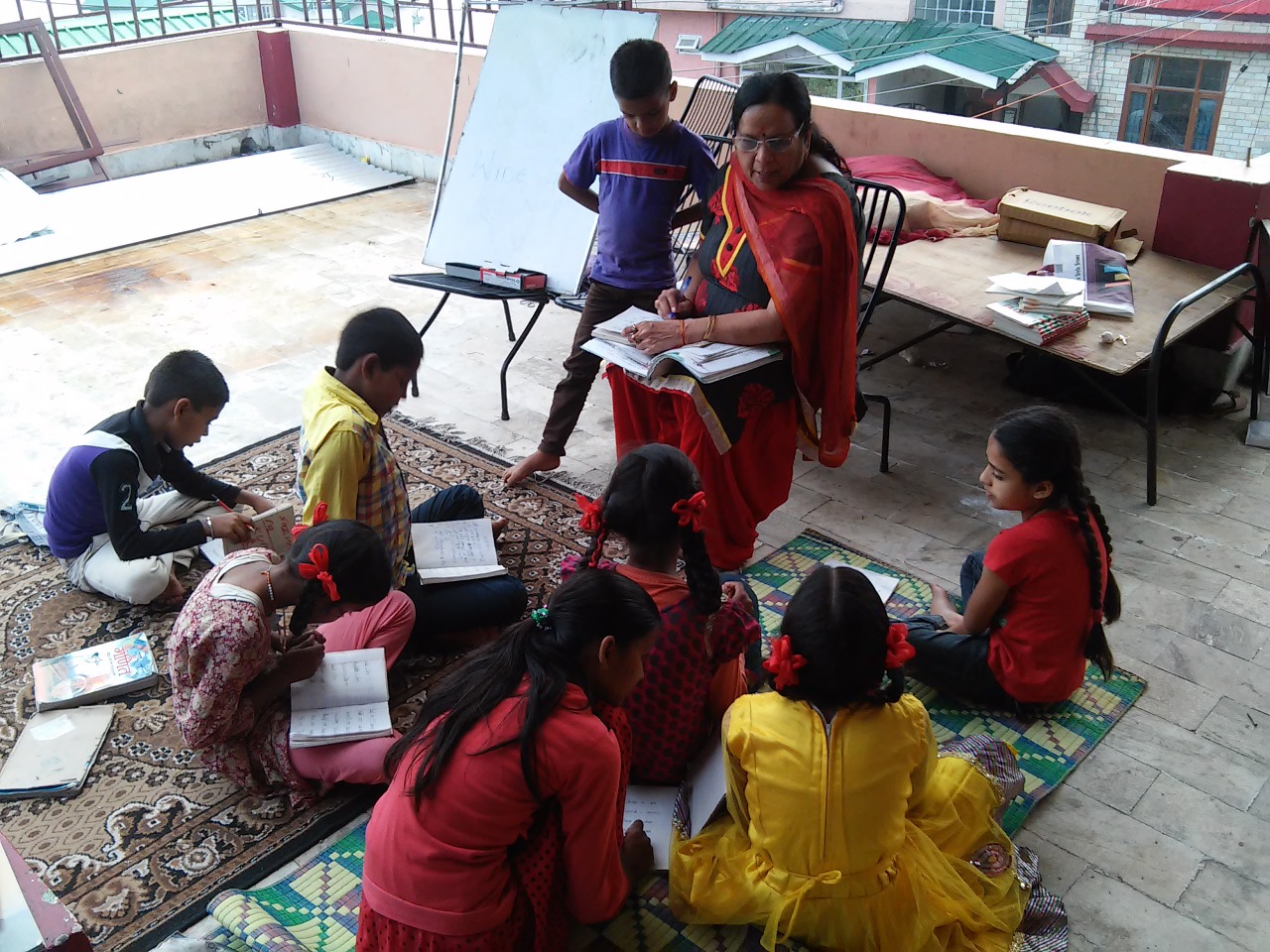
Every day from 15:30 to 18:00, tutoring is given to the children so that they do not miss the connection at school, as their parents, who have never gone to school themselves, cannot help them, nor have the time to do so, or even the money to finance tutoring.
It starts with a fruit meal to fill the children’s bellies. Then begins teaching mathematics, English, Hindi, science and computer science.
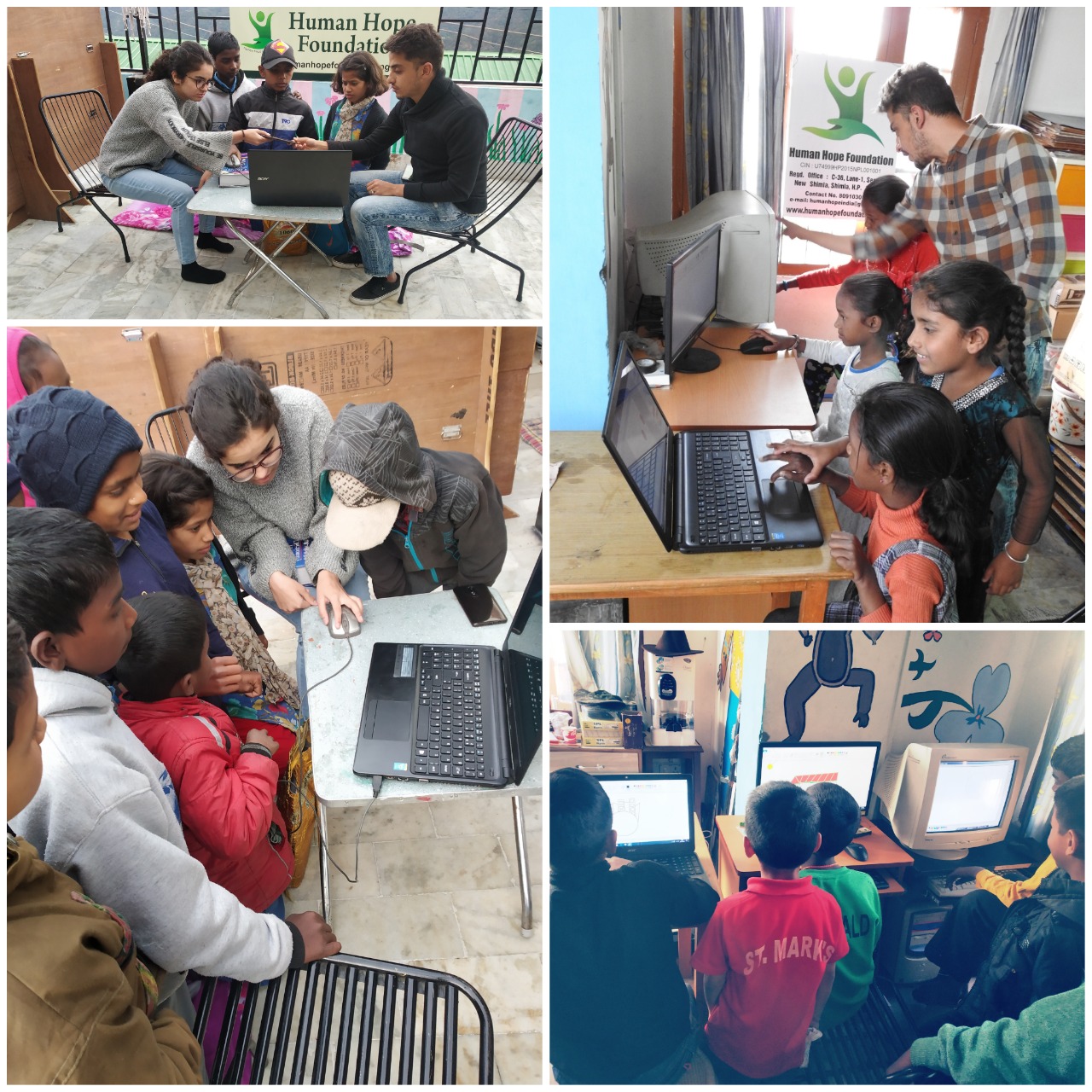
As often as possible, there is also a small snack at the end of the lesson. “That’s how the kids are motivated to really come here,” Vikram said.
Another reason to get the children into this safe environment for the two to three hours in the afternoon is to get them away from street dangers, such as drugs, child labour, etc.
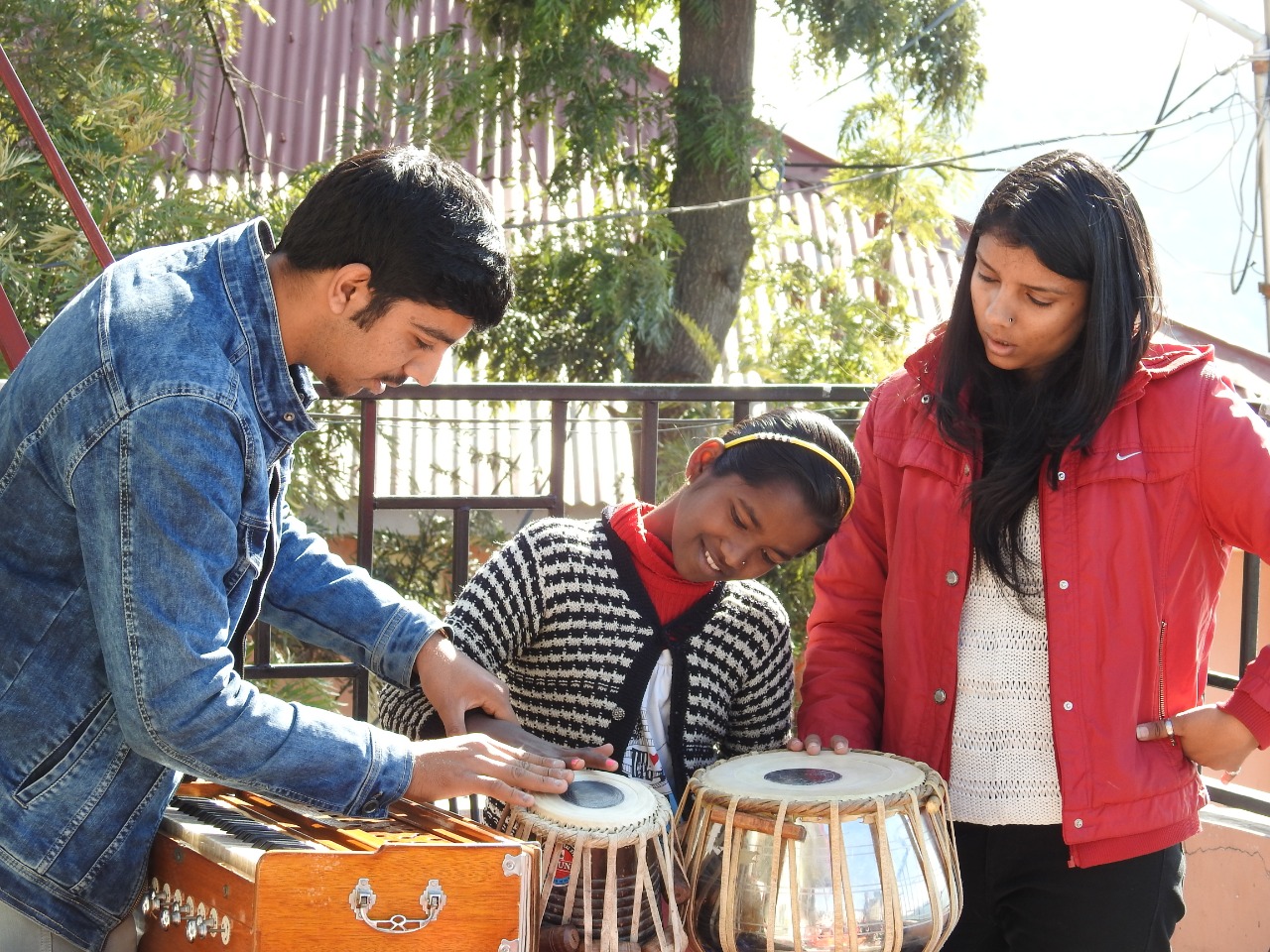
Workshops are held on weekends. Dance, music, chess and also a candle workshop have already taken place. Some of the candles were subsequently sold by the volunteers outside Diwali at stalls in Shimla.
I myself became aware of the NGO through my “bicycle” friend Gandharav. He himself studies medicine and conducts health checks of the children with his student colleagues.

Another project of the organization is to support especially talented girls in their education.
6 girls receive an annual scholarship, which sponsors tutoring, school uniform and school supplies.
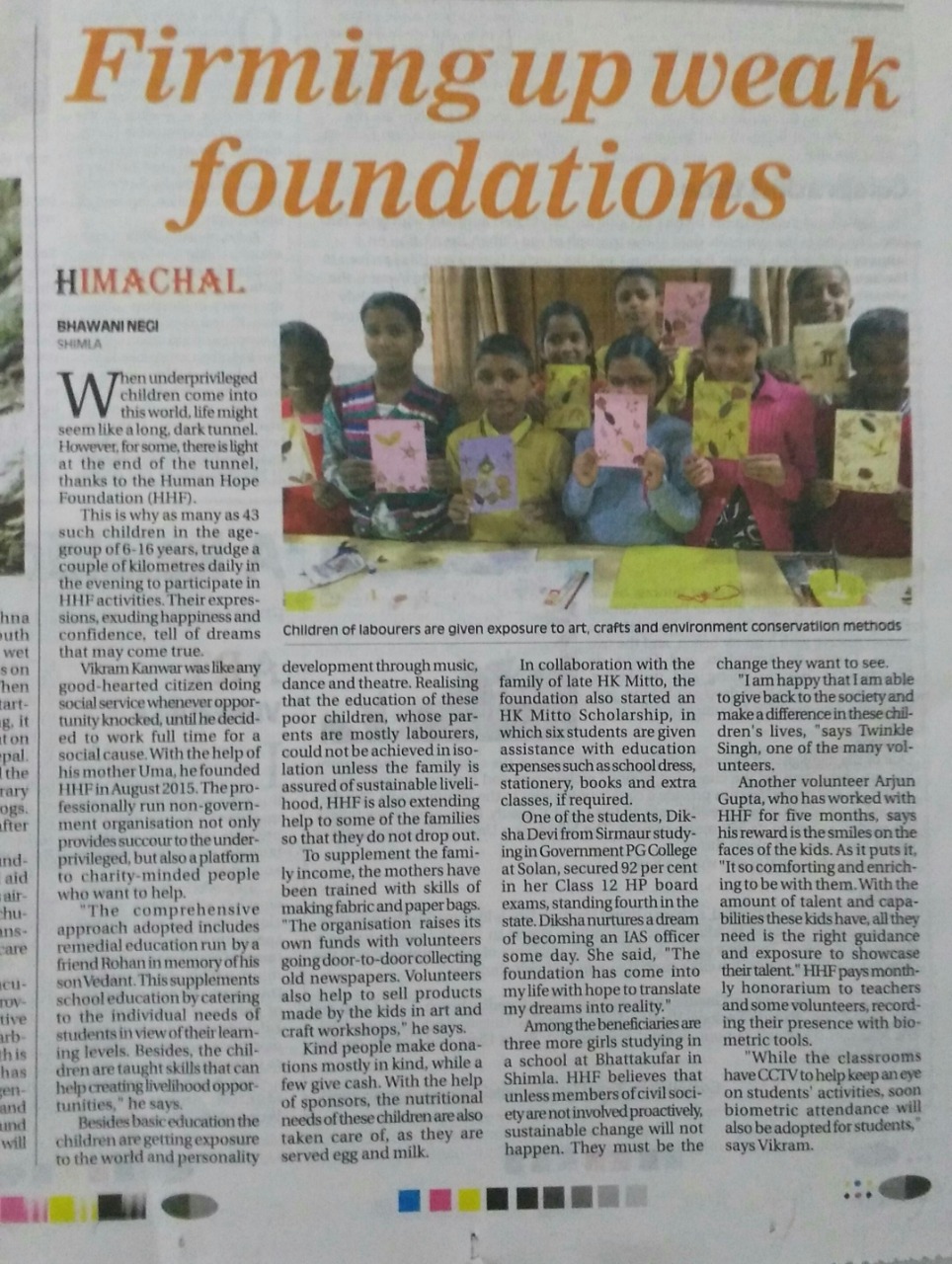
How to help:
- Donate material and equipment. The NGO is happy about games, computers, tables, benches, books, wall panels, etc.
- Dresses for the children
- Money for the payment of teachers and professional staff, food, materials, children’s clothes, festivals .
- Volunteering: You travel through India, have a special ability and feel like sharing it with the children for a few days or weeks in Shimla. Plan your project and then we try to integrate it into our plans. We will help you with temporary accommodation in Shimla and logistics.
- Sponsorship for a schoolgirl: Cover the cost of a school year for a talented girl for €100 a year. This covers school fees, material costs and school uniform. As a thank you, you get letters and pictures of your protégé and you are welcome to write to her.
